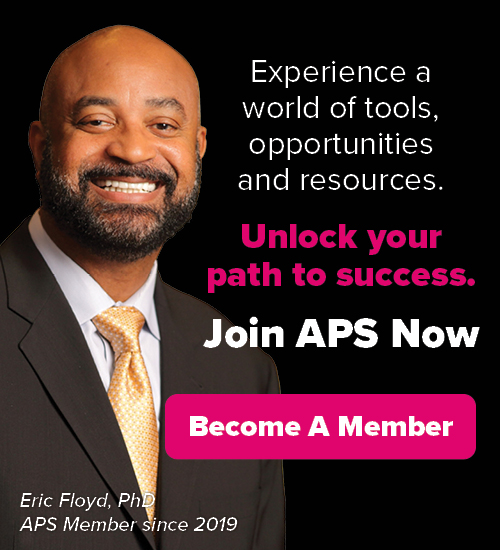- Membership & Community
-
Publications & News
- Physiology Journals
-
Newsroom
-
The Physiologist Magazine
- 2019
- 2020
- 2021
- 2022
- 2023
- 2024
-
In Depth
- In Depth—The Bear Necessities
- In Depth: Understanding Circadian Rhythms
- In Depth: Understanding Data
- In Depth: Exercise Physiology: Take Your Medicine at the Gym
- In Depth: Neurodegenerative Disorders
- Imaging Methods Unveil the Invisible
- Rewiring the Brain: Breakthroughs in Neural Therapy
- What’s Coming Next for GLP-1 and Metabolic Disease Treatment
-
Mentoring Forum
- Net Worth
- Take Care
- You … In Charge
- Work. It. Out.
- Working Off-site
- Location, Location, Location?
- Student Support
- Progressing to Postdoc
- Relationship Building
- Let’s Get It Started
- What Do We Value?
- It’s a Postdoc Life
- Coronavirus Contributions
- Creative Communications
- Selection Process
- Conference Connections
- Postdoc Appreciation
- Research Rewards
- Focus on Teaching
- Industry Insights
- Balance Beam
- Post Postdoc
- If You Build It
- Talk It Through
- Forward Bound
- I’ve Earned My PhD. Now What?
- University Life
- Tips for Trainees
- Time Travel
- Prepare Now for the Career You Want
- Landing a Postdoctoral Researcher Position
- Becoming a Physician-Scientist
- Mastering the Art of Science Communication
- Setting Yourself Up for Success in the Lab
- From Postdoc to Professor: Key Strategies for Success
- How to Stay Motivated in Challenging Times
-
Policy IQ
- Policy IQ—2023 in Review: How APS Advocated on Behalf of Physiologists
- Policy IQ—Supporting Equitable Research
- NIH's Road Map to a Better Postdoc Experience
- The Career Path to Science Advocacy
- Culture of Safety: Stopping Sexual Misconduct
- Physiologists Return to Capitol Hill
- Tips for Scientists to Communicate about Animal Research
- Science Advocacy in a New Political Landscape
- Tips for Making the Call to Congress
-
Publish with Polish
- Publish with Polish
- The Layers of Open Science
- Take Your Content From Meeting to Manuscript
- APS Journals to Highlight Women’s Health Research
- What Subscribe to Open Means for APS Members
- The 5 Pillars of Publish with Purpose
- 3 Types of Metadata Researchers Should Know About
- Navigating Open Access and New Licensing Options
- Journal Manuscript Prep Made Easy
- Under the Microscope
- Mentoring Q&A
- Evolution
- Baseline by Scott Steen, CAE, FASAE
- 2025
- Find Us on Social Media
-
The Physiologist Magazine
-
Professional Development
-
Meetings & Events
-
American Physiology Summit
- #APS2024 Overview
- Abstracts
- Awards at the Summit
- Award Lectures
- Career Networking Lunch Form
- Dates and Deadlines
- Advocate for Health Research Funding
- Hotel Information
- Information for International Travelers
- Industry Partners
- Keynote Speaker—James Rothman, PhD
- Keynote Speaker—George Brooks, PhD, FAPS
- Keynote Speaker—Holly Ingraham, PhD
- Mobile App
- NIH and NSF Program Officer Panel Discussion Form
- Physical Poster Information
- PhysioHub
- Pre-Summit Events
- Registration
- Section & Group Banquet Tickets
- Social Events
- Speaker Audiovisual Instructions
- Summit FAQs
- Summit Newsroom
- Travel & Transportation
- Undergraduate Program Book
- Liability Waiver
- Industry Partners
- 2026 American Physiology Summit
- Joseph Erlanger: Pioneering Nerve Research and APS Leadership
- 2023
- 2024
- Scientific Integrity Policy
- Exhibitor Registration Form
- New Trends in Sex Differences and Women’s Health Research
- Control of Renal Function in Health and Disease 2026
- Comparative Physiology Conference 2026
- Webinars
- Related Meetings
- Future APS Conferences
- Conference Policies
-
American Physiology Summit
- APS Awards
-
Career & Professional Development
-
Career Gateway
-
Resources
- Transcript—Leading Through Conflict and Difficult Conversations
- Transcript—Managing Conflict with Colleagues
- Transcript—Leading a Team Through Conflict
- Transcript—Providing Difficult Feedback
- Transcript—Team Dynamics and Culture Primer
- Transcript—Building a Team
- Transcript—Leading a Team Assigned to You
- Transcript—Creating a Team Culture
-
Resources
- Career Navigator
- Center for Physiology Education
- Virtual Courses
- Physiology Job Board
- APS Graduate Physiology & Biomedical Science Catalog
-
Career Gateway
-
Meetings & Events
-
Advocacy & Resources
- Policy Areas
-
Resources
- Researcher Resources
- Educator Resources
- Trainee Resources
- Student Resources
-
APS Graduate Physiology & Biomedical Science Catalog
- Des Moines University
- George Washington University
- Mayo Clinic Graduate School of Biomedical Sciences—Biomedical Engineering & Physiology
- Michigan State University
- New York Medical College
- Nova Southeastern University
- Pennsylvania State University
- Texas A&M University
- Texas A&M University Medical Physiology
- Stony Brook University
- The University of Iowa
- University of Alabama at Birmingham
- University at Buffalo
- University of Colorado
- University of Michigan
- University of Minnesota
- University of Missouri-Biomedical Sciences
- University of Nebraska Medical Center
- University of Nevada, Reno
- University of South Carolina School of Medicine
- University of Tennessee Health Science Center (UTHSC)
- University of Texas Health Science Center
- Virginia Commonwealth University
- Wayne State University
- Physiology Department Catalog Submission Form
- Boston University
- Women's Health Research Initiative
- Career Gateway
- Diversity, Equity & Inclusion
- Advocate for Science
- About APS
January 16, 2024
11 a.m. EST
In an era where student engagement is more challenging than ever, Christina Alevras, EdD, from the University of Saint Joseph in West Hartford, Connecticut, will share her insights and strategies for invigorating the modern physiology classroom. Today's students often find traditional teaching approaches less engaging in an age dominated by digital distractions and rapidly evolving technological interfaces. This disconnection not only affects student attention spans, but also creates significant knowledge gaps that may hinder academic and professional progress in physiology and related fields.
By applying the scientific method to her own teaching methodology, Alevras has developed practical ways to rekindle student interest and facilitate deeper learning. In the webinar, she will discuss her original research that measures the impact of technology-mediated active learning strategies.
Key learning objectives include:
- exploring current challenges in teaching physiology to a new generation of students with shifting learning preferences;
- discussing relevant and engaging ways to teach anatomy and physiology courses; and
- offering effective, research-backed active learning strategies to avoid overwhelming instructors while keeping the focus on course learning objectives.
Speaker
 Christina Alevras, MS, EdD
Christina Alevras, MS, EdD
University of Saint Joseph in West Hartford, Connecticut
Christina Alevras, MS, EdD, is an assistant professor of biology and Universal Design for Learning Teaching Fellow at the University of Saint Joseph in West Hartford, Connecticut. She has taught anatomy and physiology, human biology, endocrinology and other courses since 2004. Alveras focuses on exploring new, more effective means to communicate complex subject matters to students. Her goal as an educator is to serve as a guide in support of students as they progress in their educational journey.


